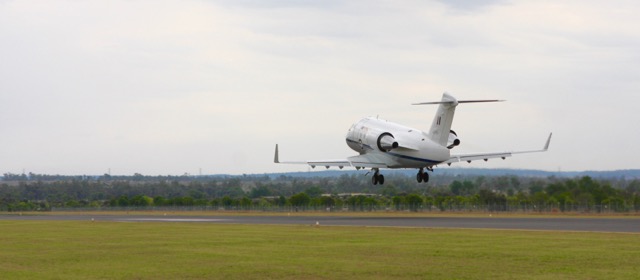
Posts about stuff relating to airports

Systems Modelling
When I joined the aviation safety regulator I was introduced to the concept of systems-based auditing (SBA). Before this I had been carrying out aerodrome inspections and I thought becoming an Aerodrome Inspector for the government was going to be more of the same. How wrong I was! Even after four years, my concept of systems-based auditing is still evolving. I coming to discover, and it seems everything I read will attest, that most things in life tend to be more complex than we initially think - SBA is no different.
Image credit: Jeremy Waterhouse (via Pexels)

Integrating Runway Safety Teams with your Safety Management System
I've just spent an amazing week in Bali1 workshopping with operators and regulators from the Asia-Pacific region (and some from further afield) on the issue of runway safety. We got a lot of good information from the Flight Safety Foundation, ICAO and COSCAP as well as airlines, airports and regional regulators.
The primary objective of the week was to provide information on and practice in the establishment and conduct of Local Runway Safety Teams (LRSTs). To this end, the seminars and workshop were great but I left feeling like one connection had been missed. The final question on my mind and many others, I am sure, was:
How do these runway safety initiatives integrate into my SMS?

Kaboom!
A long time ago I blogged about the risk posed by unexploded ordnance. Well, last week Schiphol Airport in the Netherlands had to deal with that very problem.
Check out the video here…

Like a Comfy Pair of Slippers
After a year away from airports, I couldn't stand it any longer. So, I'm back and this time I'm actually working for an airport operator. As such, I'll be swimming in airport stuff again and as I hit something interesting, I'll post it here. I'll also be posting a few projects I'm working on and a couple of handy hints and tips from time to time.
Header image: Lisa Fotios (via Pexels)

Regulation, The Final Frontier?
The week before last, I finished a 4-year stint with the aviation safety regulator. Even though I'm heading back to industry, I'm not going to stop writing this blog. I believe that the role of the national regulator is the next safety frontier (not the last ;)) and I like the idea of exploring new territory. As the industry continues to explore concepts like safety management, systems-based this, risk-based that and outcome-based whatchamacallit as well as safety culture, we are all going to come to the realisation that safety can be greatly affected (more than we ever imagined) by the approach and actions taken by a national regulator.

BTII: Control-freak*
As a follow-on to my first post on the Bow-Tie risk assessment method, I thought I'd concentrate on controls (or barriers or whatever else you would like to call them). This is, after all, where all the action happens. Risk controls are how we spend most of our time - they are the practical aspect of managing risk.

Lessons from Taleb's Black Swan
Having just finished reading Nassim Taleb's The Black Swan, I initially thought about writing a not-so-in-depth assessment of the book's positive and negative points - but I'm not much of a book reviewer and a comprehensive critique is probably beyond my capabilities (at this stage). So, instead I thought I would focus on just a couple of the book's significant concepts and explore how they may apply in the aviation context.

BTI: Dressing up for Risk Assessments
I've been doing a lot of pondering on the Bow-Tie method of risk assessment for a project at work. Bow-Tie is a tool used by many, especially in the oil & gas industry, to create a picture of risk surrounding a central event. It's got a few positives and a few negatives but these can be overcome if you understand the limitations of the model being used.

Crowd-sourced Certifications
I've just been mucking around with a new Internet service called Smarterer. That's not a typo, it really is Smarter-er. I guess, in a nutshell, it's an online quiz creator which is meant to help you quantify and showcase your skills. The twist in this implementation is that the quizzes are crowd-sourced. Anyone can write questions for the quiz and thus over time, the group interested in the topic defines the content and the grading of the quiz.

Under Thinking Just Culture and Accountability
I am definitely capable of over thinking, of tying myself up in knots and being lost in the detail. And other times, I probably haven't thought enough. Recently, I identified just culture as a concept I hadn't really thought about in-depth.
In my mind, I thought I knew what a just culture was. I knew it was more than a simple no-blame policy. I knew it involved establishing what is acceptable and not acceptable behaviour. But that had been the limit of my thinking.

SMS Considered
While in Bali talking Runway Safety with a wide range of industry personalities, I found myself at the hotel bar talking SMS with Bill Voss from Flight Safety Foundation. The topic was obviously on Bill's mind because upon my return, I found his latest president's piece in FSF's AeroSafety World to be a good overview of his main SMS points. Some of these points have been on my mind too. Since I'm not one to recreate the wheel (providing it works and is fit for purpose), I'll use some of Bill's well-formed words to kick this off.
Image credit: Nick Bondarev (via Pexels)

Logical Fallacies in the Safety Sphere
Sometimes I feel like I really missed out by not receiving a "classical" education. While I can probably live without the latin and greek philosophy, one area I've been keen to pick up is formal logic. The forming of a coherent and valid argument is a key skill which is, in my opinion, overlooked in safety management. Which is disappointing since making such an argument is at the heart of making a safety case.
I'm not going to tackle the subject of logic today. To be honest, I don't know enough about the overall concept. Instead, I'm going to focus on the typical failings present in a logical argument - the logical fallacies.
Image credit: Steve Johnson (via Pexels)

Integrating Runway Safety Teams with your Safety Management System
I've just spent an amazing week in Bali1 workshopping with operators and regulators from the Asia-Pacific region (and some from further afield) on the issue of runway safety. We got a lot of good information from the Flight Safety Foundation, ICAO and COSCAP as well as airlines, airports and regional regulators. The primary objective of the week was to provide information on and practice in the establishment and conduct of Local Runway Safety Teams (LRSTs). To this end, the seminars and workshop were great but I left feeling like one connection had been missed. The final question on my mind and many others, I am sure, was:
How do these runway safety initiatives integrate into my SMS?
Image: Agência Brasil

Levels. Levels? Yeah...
Seinfeld fans may remember this short exchange. Kramer might have been on to something and it had nothing to do with interior design. In my research and work, I've been butting up against a few theoretical roadblocks. But I am starting to think that these roadblocks are actually different levels. Internet guru*, Merlin Mann often observes that people need to solve the right problem at the right level. And now, I'm starting to think that is exactly what I need to do.

Work-Me & Blog-Me
AUGUST 2012 UPDATE: I've changed jobs since I posted this. However, I think it still works as a fair assessment of the relationship between this blog and my current job, which is not with the regulator. In this, the Web 2.0 world, connections can be made easily. There is no practical way to disconnect completely my blogging from my work.
And while my little disclaimer on the right is designed to create a barrier between the two, it probably doesn't address what has the potential to be a complex relationship.

As Low As Reasonably Practicable
It's another staple of the risk management diet but while I believe this one to be a completely valid concept, I can't help to feel that its being served up underdone. This time I'm talking about ALARP - As Low As Reasonably Practicable. To define ALARP, at least how I do, would probably negate the need to write the rest of this post. So let's just say that ALARP is the point at which any further reduction in risk would require resources significantly greater than the magnitude in the benefit gained*.
Image credit: Sam Willis (via Pexels)

On the Shoulders of Giants
I can't rule out that I had already viewed this presentation and the words pathways and proximal became lodged in my mind - seeds sown to sprout some distant day in the future. But upon reading this document (again?) I was struck by the apparent similarities with my proposed risk evaluation methodology, which was the subject of much ranting a few weeks ago - here, here, here, here and here.
Find out what presentation by reading on…

Culture: Complicated
A slipperier concept than culture there is not and yet, we definitely love to talk about it. Now I'm not suggesting that all this talk stop. There is nothing wrong with trying out different approaches to cultural change and seeing what works. However, I'm a bit of an academic and I don't mind a little esoteric pondering now and then. The following discussion is a summary of some ideas I cogitated on a couple of years ago when completing a minor research project for my Masters.

Wrapping Up PIGs .... For Now
Since I don't just want to be thought of as some PIG-hating obsessive lunatic, lets wrap this thread up for the moment. Quick recap: The traditional likelihood-consequence matrix (PIG - see original post) is not particularly useful when dealing with aviation safety. Why? Because a graduated consequence scale fails to recognise the perilous nature of aviation and consequence as a dimension isn't particularly useful when evaluating latent conditions remote from the ultimate outcome (death by aviation).
Alternate approach: Instead of scoring the consequence directly, I've offered two alternative dimensions under the generic title of influence1 - proximity and pathways.
In wrapping this up, I thought I would discuss what I think is the rationale behind this approach of using slightly off-centre indicators.

Influential Behaviour
Near the end of my last post, I used the Swiss-cheese model to highlight that many risk conditions1 worthy of attention are not necessarily proximate to the ultimate outcome. I also hinted in the post before that, that I thought this to be only half the story. To tell this story, let me introduce another accident causation modelling technique. It is called an AcciMap and it is gaining popularity because it offers a way of representing the relationships between events (these being things such as decisions, functions, tasks, actions, etc.). An AcciMap is set up in two dimensions with vertical lanes separating system levels of increasing generality as you move up and the horizontal axis having no fixed dimension or scale. The system levels begin very specific to the accident in question with equipment and actor activities making up the first two levels. The higher levels relate to organisational, regulatory authority and government policy and decision making.
